|

Greetings to all... here the Dayspring Ministry Group
is stating our understanding concerning God's
call to men and to women. The DMG teaches that the scripture states that what Paul
was sharing was information
for Husbands and Wives... If you are interested in further comments please send us an email
to aactonline@yahoo.com. We welcome your response to our interpretation of scripture.
We teach that women are called equally as are men
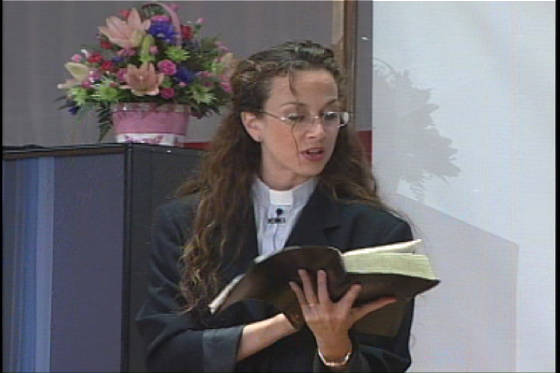
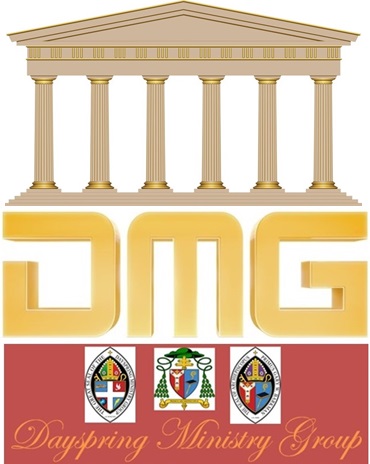
>>>For additional links to AEC&F web pages
please scroll down and click on the link To
return to this page please hit the back button<<<
A Statement from Gary W. Barkman, Ph.D., D.C.C., Th.D., President and Archbishop Primus of the Dayspring Ministry Group
(The Apostolic Episcopal Communion & Fellowship is in no way attached to the Apostolic Episcopal Church and is not
a part of the AEC in any way.)...
I want to share that we are a Spirit Filled, Christ Centered, Evangelical,
Conservative part of the Body. We take some of our organization from the Holy
Catholic, The Anglican, The Orthodox, and several other episcopal type bodies,
but also including the Pentecostal and Charismatic…Our worship ranges from high
church to Pentecostal/Charismatic, depending where we are and what we are
trying to accomplish in the worship service. When we ordain and consecrate we
celebrate with liturgy. Apostolic Succession is a part of the Apostolic
Episcopal Communion and Fellowship Churches (A E C & F Churches) and is
given to all Bishops unless they refuse to receive Apostolic Succession.
Other services may find us laying hands on people and many “falling out” in the
Spirit. Yet on another hand we are ecumenical, tolerant, progressive, and try
to be on the cutting edge of what is happening religiously and spiritually in
our world today.
The definition of the word episcopal has variation among Christian
traditions. There are subtle differences in governmental principles among
episcopal churches at the present time. To some extent the separation of
episcopal type churches can be traced to these differences in
ecclesiology, that is, their theological understanding of church and church
governance. For some, "episcopal churches" are churches that use a
hierarchy of bishops that regard themselves as being in an unbroken, personal
apostolic succession. This is the Apostolic Episcopal Communion and Fellowship
Churches. The term "Episcopal" is also commonly used to distinguish between
the various organizational structures of denominations. For instance, the word
Presbyterian (Greek: 'πρεσβύτης, presbítes) is used to describe a church
governed by a hierarchy of assemblies of elected elders, referred to as Presbyterian.
Similarly, episcopal is used to describe a church governed by bishops.
Self-governed local congregations, governed neither by elders nor bishops, are
usually referred to as Congregational.
More specifically, the title Episcopal (capitalized in this instance) is
applied to several churches historically based within Anglicanism
(Episcopalianism) including those still in communion with the Church of
England. The Episcopal Church is descended from the Church of England, and through its
bishops, can trace its history all the way back to the earliest Christian
communities.
The Church of England separated itself from Roman jurisdiction but
did not reject its Catholic heritage.
Thus, the Church of England came to be called the via media, or the "middle
way," between the Protestant churches and the Roman Catholic Church. In
this way, churches in the Anglican Communion are both Protestant and Catholic,
and maintain traditions found in both of those branches of Christianity. The Apostolic Episcopal Communion and
Fellowship Churches recognizes itself to
be a part of the "one holy and catholic church." It has bishops,
priests and deacons, like the Roman Catholic and Orthodox churches. As well,
its liturgy is similar to the Catholic mass.
But its emphasis on Scripture, its willingness to allow clergy to marry, as
well as its love of great hymns, establishes some parallels with Protestant
traditions as well.
In a sense, therefore, it is both. Mixed marriages, with one partner Roman
Catholic and the other from a Protestant tradition, often find in the Episcopal
Church a home they can share so that the family is united in the faith.
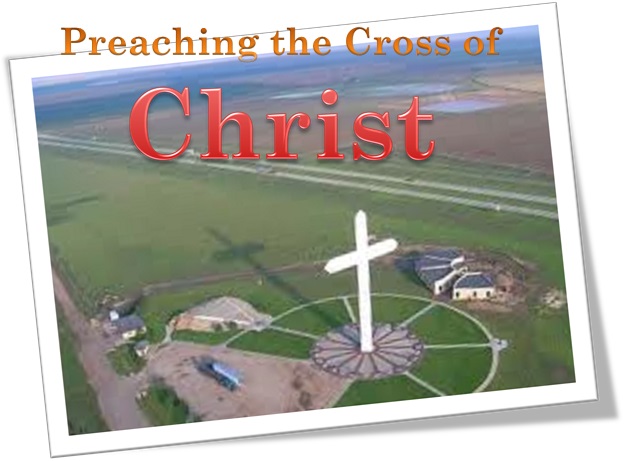
Our Definition
of the "True Catholic
Faith"
Promulgated by Patriarch Paul on October 29, 2012
Patriarch of the Holy Catholic Church International
True Catholic Faith is "An uncompromising commitment to obey the clearly
defined wishes of Christ for His Church as practiced by the apostles and their
successors generation after generation through the authority of those lines of
Apostolic Succession that are indisputably valid and without blemish. This
commitment relies upon an educated understanding of Holy Scripture, not merely
knowing the contents thereof, plus historically proven Holy Tradition. Holy
Tradition is partially defined as what has been consistently believed by well
instructed Christians in all places always throughout history."
Tradition includes how we worship, most notably our liturgy the music in our
hymnals, and the creeds we say in worship which express our beliefs. The
liturgy used in the Apostolic Episcopal Communion and Fellowship,
in fact, is largely the same one used in all Western liturgical churches, such
as the Roman Catholic and Lutheran churches. In fact, tradition is important in
all churches whether it is conceded or not.
Tradition is how the wisdom of Christians who went before helps us answer
questions today that are not decisively addressed in Scripture. We believe that
God is still active in the church and that the Holy Spirit has been promised to
guide the church. Important traditions in the Apostolic Episcopal Communion and
Fellowship Churches are the use of the Book of Common Prayer, the priesthood,
and the sacraments.
The sacraments are defined in the Book of Common Prayer as the "outward
and visible signs of inward and spiritual grace, given by Christ as sure and
certain means by which we receive that grace." The sacraments are tangible
means (water, bread, wine) of God's bestowal of God's grace given to us. The
two principal sacraments as in the Episcopal Church are the sacrament of
Baptism, in which we are marked as a child of God with the sign of the cross in
water, and the Eucharist, in which we remember and celebrate Jesus' life,
death, and resurrection. Along with most Christians, we believe that Christ is
truly present at the sacrifice of the altar.
Baptism happens only once since it signifies adoption by God and adoption
happens only once. The Eucharist, by contrast, happens weekly in the church
since it is the parish Sunday meal commissioned by the Lord. The other
traditional rites that are sacramental include confirmation, ordination,
marriage, reconciliation (confession and absolution), and the anointing of the
sick. They are sacramental because they bestow the grace of God on the
recipient.
Apostolic Episcopal Communion and Fellowship Church members may make private
confessions to a priest and indeed some should, but private confession is not
obligatory in the Apostolic Episcopal Communion & Fellowship. A general confession of sins is part of
each Eucharist. The great Christian writer C.S. Lewis came to make private
confession a part of his Christian life as he grew in his Christian experience.
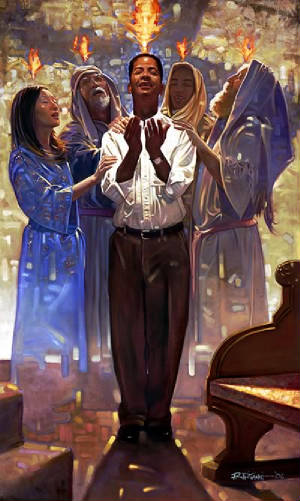
Pentecostalism
or Classical Pentecostalism is a
renewal movement within Christianity that places special emphasis on a direct
personal experience of God through the baptism with the Holy Spirit. The term
Pentecostal is derived from Pentecost, the Greek name for the Jewish Feast of
Weeks. For Christians, this event commemorates the descent of the Holy Spirit
upon the followers of Jesus Christ, as described in the second chapter of the
Book of Acts.
Like other forms of evangelical Protestantism, Pentecostalism adheres to the
inerrancy of scripture and the necessity of accepting Christ as personal lord
and savior. It is distinguished by belief in the baptism with the Holy Spirit
as an experience separate from conversion that enables a Christian to live a
Holy Spirit filled and empowered life. This empowerment includes the use of
spiritual gifts such as speaking in tongues and divine healing–two other
defining characteristics of Pentecostalism. Because of their commitment to
biblical authority, spiritual gifts, and the miraculous, Pentecostals tend to
see their movement as reflecting the same kind of spiritual power and teachings
that were found in the Apostolic Age of the early church. For this reason, some
Pentecostals also use the term Apostolic or full gospel to describe their
movement.
The first Pentecostals were radical adherents of the Holiness Movement. These
early 20th century Christians were energized by revivalism and expectation for
the imminent Second Coming of Christ. Believing that they were living in the
end times, these evangelicals expected God to spiritually renew the Christian
Church thereby bringing to pass the restoration of spiritual gifts and the
evangelization of the world. In 1900, Charles Parham, an American evangelist
and faith healer, began teaching that speaking in tongues was the Bible
evidence of Spirit baptism. The three-year-long Azusa Street Revival in Los
Angeles, California, resulted in the spread of Pentecostalism throughout the
United States and the rest of the world as visitors carried the Pentecostal
experience back to their home churches or felt called to the mission field.
While virtually all Pentecostal denominations trace their origins to Azusa
Street, the movement has experienced a variety of divisions and controversies.
An early dispute centered around challenges to the doctrine of the Trinity. The
Apostolic Episcopal Communion & Fellowship is Trinitarian.
Baptism
in the Holy Spirit
This portion of our tradition reflects commonly held beliefs based on scripture
which have been endorsed by the Apostolic Episcopal Communion and
Fellowship Churches Commission on Doctrinal Purity and the Council of Bishops.
Why is the Apostolic Episcopal Communion and Fellowship Churches so
committed to the doctrine of the baptism in the Holy Spirit with the initial
evidence of speaking in tongues?
The Baptism in the Holy Spirit is a vital experience of the Christian life. It
is a special work of the Spirit beyond salvation. On the Day of Pentecost,
disciples who had already made a decision to follow Jesus "were filled
with the Holy Spirit and began to speak in other tongues" (Acts 2:4). Paul
asked the Ephesians disciples if they had received the Holy Spirit, after which
"the Holy Spirit came on them, and they spoke in tongues" (Acts
19:2). New Testament believers were constantly challenged to be filled with the
Spirit (Acts 1:4,5; Ephesians 5:18). The Apostolic Episcopal Communion and
Fellowship Churches are committed to the baptism in the Holy Spirit because the
experience is such an important focus of New Testament Christianity.
Though many non-Pentecostals teach a baptism in the Holy Spirit without
speaking in tongues, the position of the Apostolic Episcopal Communion and
Fellowship Churches is clearly declared in Section 8 of its Statement of
Fundamental Truths: "The baptism of believers in the Holy Spirit is
witnessed by the initial sign of speaking with other tongues as the Spirit of
God gives them utterance (Acts 2:4)." The evidence always occurred (and
still does today) at the time believers were baptized in the Spirit, not at
some indeterminate future time.
Speaking in tongues is the only phenomenon mentioned every time Scripture
supplies details concerning the Baptism experience. Of the five instances in
Acts which recount the experience of believers being baptized in the Spirit,
three supply details. Speaking in tongues is the only one that occurs each time
(Acts 2, 10, 19). In the Acts 10 account, tongues is specifically mentioned as
proof that "the gift of the Holy Spirit had been poured out even on the
Gentiles. For they heard them speaking in tongues" (Acts 10:45, 46). The
relationship between the phenomenon and the experience cannot be ignored.
In the two cases where details are not supplied, circumstances strongly imply
that speaking with other tongues accompanied the experience. In Acts 8 Simon
saw something (most likely tongues) that prompted him to offer money for the
power to impart such a gift. In Acts 9 Saul (who became Paul) is filled with
the Spirit without the mention of any details. However, Paul later testified,
"I speak in tongues more than all of you" (1 Corinthians 14:18). It
is logical to conclude that he began speaking in tongues when he was baptized
in the Holy Spirit.
We (The A E C & F Churches) believe the baptism in the Holy Spirit with the
initial physical evidence of speaking in other tongues is the promise of the
Father to every Christian who desires the experience.
The Apostolic Episcopal Communion and Fellowship Churches is somewhat related
to the Anglican church of the USA (and also of Scotland) and is one of the
provinces of that church along with the Church of England, the Church in Wales
and many Anglican churches in Africa. The The A E C & F Churches,
though not approved by any denomination yet places herself in this Province.
In the Anglican / Episcopal communion there are 3 orders of ministers: deacons,
priests and Bishops. Occasionally, an Episcopal deacon or priest is referred to
simply as a 'minister.' However, unlike other Christian ministers, there is a
significant difference regarding the understanding of ordination and the
sacramental priestly role. Additionally, the Apostolic Episcopal Communion & Fellowship has
non-ordained ministers such as local preachers, lay readers, accredited
lay-workers and so on, however, lay ministers are not permitted to celebrate
sacraments as an ordained minister or 'priest' would.
The priestly role in the Church of England and in the Apostolic Episcopal
Communion and Fellowship Churches is slightly different from that of the Roman
Catholic Church. For starters, Roman Catholics have a slightly different
concept of what happens at the mass than Anglicans/Episcopalians do. Roman
Catholics believe that it is the priest that is transforming the bread and wine
into Christ's body and blood. Anglicans and Episcopalians typically
believe that God is the one performing the Sacrament, and that the priest is just
working as vessel ordained by Christ, however he (or she) is not the one
transforming the elements, rather it is God. Also, Roman Catholics hold strong
to the belief of transubstantiation or the belief that the bread and wine
physically transform into Christ's literal body and blood. Whereas
Anglicans/Episcopalians tend to be more diverse in their Eucharistic theology,
Ranging from Real Presence, to Consubstantiation, to Transubstantiation and
anything and anywhere in between.
However, one thing all Anglicans/Episcopalians believe is that in some manner,
when the priest celebrates the Eucharist, it is no longer simply bread and
wine, but also the real presence of Christ, his True Body and Blood. However,
the 'how' and 'in what way' remains a mystery for Anglican/Episcopalian
Christians, and it is preferred that way. Just as God is a mystery, so is the
Eucharist.
Some Anglicans allow women to be ordained as deacons, priests and Bishops.
Likewise, The Apostolic Episcopal Communion & Fellowship does also allow women to become
Clergy. The term 'priest' was retained after the Church of England
broke ties with Rome in the 16th Century, as this schism was not over theology,
but politics. Although there are striking similiarities between both the
Catholic and Anglican priesthood, such as apostolic succession, and the
Eucharistic and sacramental role, there is also varying differences as well.
Anglican/Episcopalians tend to view their priests on a more human light,
recognizing them as guided and consecrated by God, but remaining human and
therefore permitted to marry or have relationships.
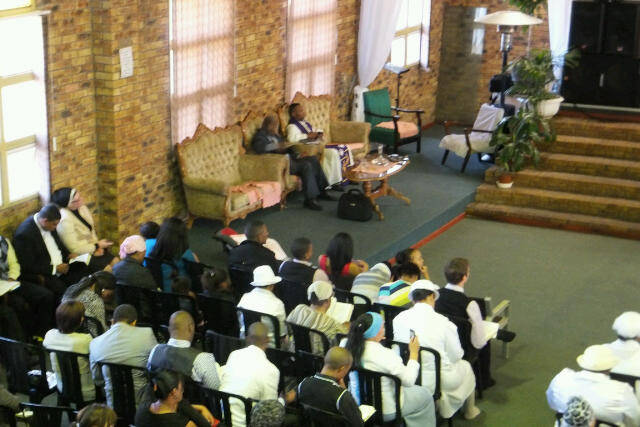
The Apostolic Episcopal Communion (who are the DMG - AEC)
DMG - AEC Member Benefits
Making application for Deacon and Priest DMG - AEC
DMG - AEC Application for Candidacy
Blank Forms DMG - AEC
The Apostolic Episcopal Communion (Contact the DMG - AEC)

|
